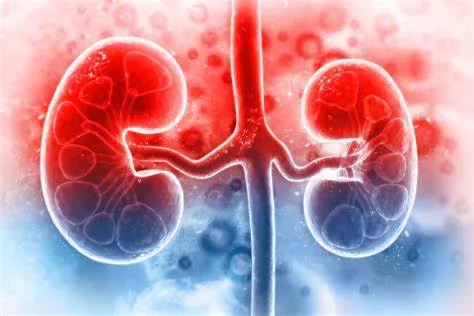Hypertension, commonly known as high blood pressure, is a significant risk factor for the development and progression of chronic kidney disease (CKD). Chronic kidney disease refers to the gradual loss of kidney function over time, leading to complications such as fluid retention, electrolyte imbalances, and the accumulation of waste products in the body. Understanding the intricate relationship between hypertension and CKD is crucial for effective management and prevention strategies. In this article, we delve into the mechanisms through which hypertension contributes to the onset and progression of chronic kidney disease.
Understanding Hypertension and Chronic Kidney Disease
Firstly, it’s essential to understand what hypertension and chronic kidney disease are and how they are diagnosed. Hypertension is defined as persistently elevated blood pressure, with normal blood pressure readings typically falling below 120/80 mmHg. On the other hand, chronic kidney disease involves the gradual loss of kidney function over months or years, categorized into stages based on the glomerular filtration rate (GFR) and the presence of kidney damage markers.
The Role of Blood Pressure Regulation in Kidney Function
The kidneys play a crucial role in regulating blood pressure by adjusting the volume of blood and the balance of sodium and water in the body. When blood pressure is elevated, it exerts increased pressure on the delicate blood vessels in the kidneys, leading to damage over time. This damage primarily affects the small blood vessels called arterioles and the functional units of the kidneys known as nephrons.
Impact of Hypertension on Kidney Blood Vessels
One of the key mechanisms through which hypertension contributes to chronic kidney disease is by damaging the blood vessels within the kidneys. Prolonged high blood pressure causes endothelial dysfunction, where the inner lining of blood vessels becomes damaged and less effective in regulating blood flow. This endothelial damage leads to inflammation, oxidative stress, and impaired vasodilation, all of which contribute to further kidney damage.
Effects on Glomerular Function
The glomeruli are clusters of tiny blood vessels within the nephrons responsible for filtering waste products and excess fluids from the blood to form urine. In hypertensive individuals, the increased pressure within the glomerular capillaries can lead to glomerular hypertension. This condition puts strain on the glomeruli, leading to structural changes such as glomerulosclerosis (scarring) and reduced filtration capacity. Over time, these changes contribute to a decline in kidney function.
Influence on Renal Blood Flow
Hypertension also affects renal blood flow, the amount of blood delivered to the kidneys per unit of time. Elevated blood pressure can disrupt the autoregulation mechanisms that maintain stable renal blood flow across a range of systemic blood pressures. This dysregulation can further compromise kidney function and contribute to the progression of chronic kidney disease.
Role of Renin-Angiotensin-Aldosterone System (RAAS)
The renin-angiotensin-aldosterone system is a complex hormonal cascade involved in blood pressure regulation and fluid balance. In hypertension, there is often overactivity of the RAAS, leading to increased production of angiotensin II, a potent vasoconstrictor. Angiotensin II contributes to renal vasoconstriction, sodium retention, and inflammation within the kidneys, exacerbating kidney damage and dysfunction.
Inflammatory and Fibrotic Pathways
Chronic inflammation and fibrosis play significant roles in the progression of kidney damage in hypertensive individuals. Elevated blood pressure triggers inflammatory responses within the kidneys, involving cytokines, chemokines, and immune cells. This chronic inflammation contributes to tissue damage, fibroblast activation, and the deposition of extracellular matrix components, leading to progressive renal fibrosis and impaired kidney function.
Impact on Albuminuria and Proteinuria
Albuminuria and proteinuria, the presence of excessive albumin and protein in the urine, are common markers of kidney damage and dysfunction. Hypertension contributes to the development of albuminuria and proteinuria through mechanisms such as increased glomerular permeability, podocyte injury, and alterations in tubular reabsorption. These urinary abnormalities further indicate the progression of chronic kidney disease in hypertensive individuals.
Clinical Implications and Management Strategies
The association between hypertension and chronic kidney disease has significant clinical implications for healthcare providers. Early detection and management of hypertension are crucial in preventing or slowing the progression of kidney damage. Treatment strategies often include lifestyle modifications (such as dietary changes, weight management, and regular exercise) and pharmacological interventions (such as antihypertensive medications targeting the RAAS, calcium channel blockers, and diuretics).
Conclusion
In summary, hypertension is a major contributor to the development and progression of chronic kidney disease through its effects on renal blood vessels, glomerular function, renal blood flow regulation, inflammatory pathways, and the RAAS. Understanding these intricate mechanisms is essential for implementing effective prevention and management strategies to preserve kidney function and improve patient outcomes in hypertensive individuals at risk of chronic kidney disease.

